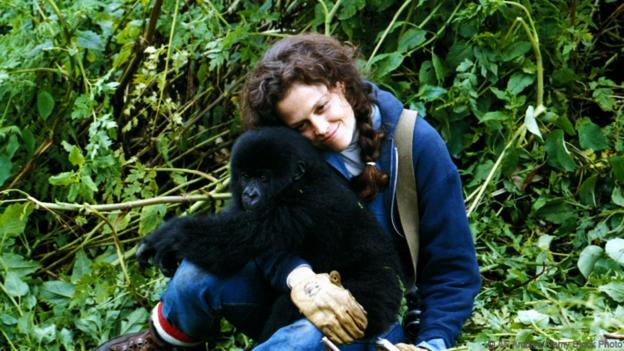Taking care of gorillas is not on the schedule
Reagan Feld
Advanced Placement Environmental Science is often discredited. Viewed as the “easy AP science,” the APES course is a double block, making it a lot of work. The AP test consists of 100 multiple choice questions completed in 1 hour 30 minutes and 4 free response questions in 1 hour and 30 minutes.
A common misconception about this class is the amount of math. Have you tried to do long division after 6 years of using a calculator? Yeah, I thought so. Besides long division, multiplication in completed by using the cross and lattice methods. Doing long division and the lattice method of multiplication after not being used for several years can really strain the brain.
Another misconception is the material. Material that is not on the syllabus is the study of real apes, likes gorillas or orangutans. The name suggests that the study of primatology will occur. There are many labs, and all of the data must be collected by hand and calculated BY HAND. Frequent trips outside into the woods happen during the class. For those math whizzes, this class will be a piece of cake.
The people that are interested in this subject must think about the level of academic intensity that goes along with an AP science. Constant math quizzes, chapter quizzes, and labs make up the curriculum of the class.
Nadia Moallin, a senior, said “Honestly, when I was going into Advanced Placement Environmental Science (APES) after hearing what everyone was saying, I really thought this class was going to be extremely easy and that I wouldn’t have to worry about it; however, that was not the case at all. The workload is actually rigorous and especially our last unit on cycles…..that was a mess.”
Compared to other double-blocked sciences, APES has a 47.5% pass rate. Only 8.5% of the people that pass receive 5’s. The average for AP exam (2018) was 2.7. AP Chemistry, on the other hand, has a higher passing rate at 54.9% and AP Biology has the highest at 61.5%. People may underestimate the difficulty of the class, but the test yields fewer passes than the normally characterized “hard” sciences.
So when classes are beginning considered, and you are thinking about science for next year, consider APES on the level of AP Chemistry or AP Biology. After all, it is an AP for a reason.
Darcy McIlwain, a junior, said “It’s not as easy as you think it is; it’s a fun class but the cycles unit is not fun at all. Relearning basic math, (like multiplying and dividing decimals) is also much harder than it should be.”



